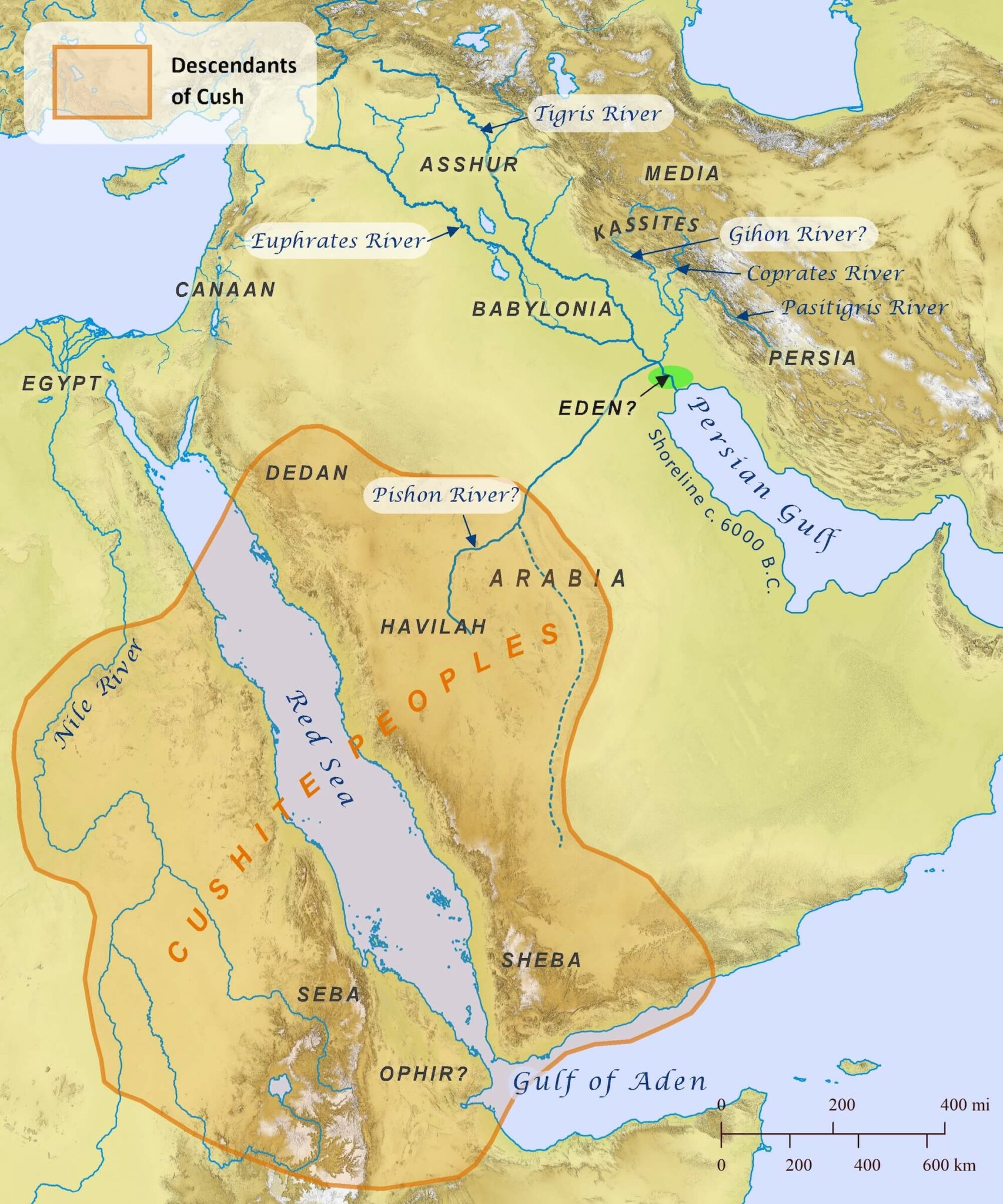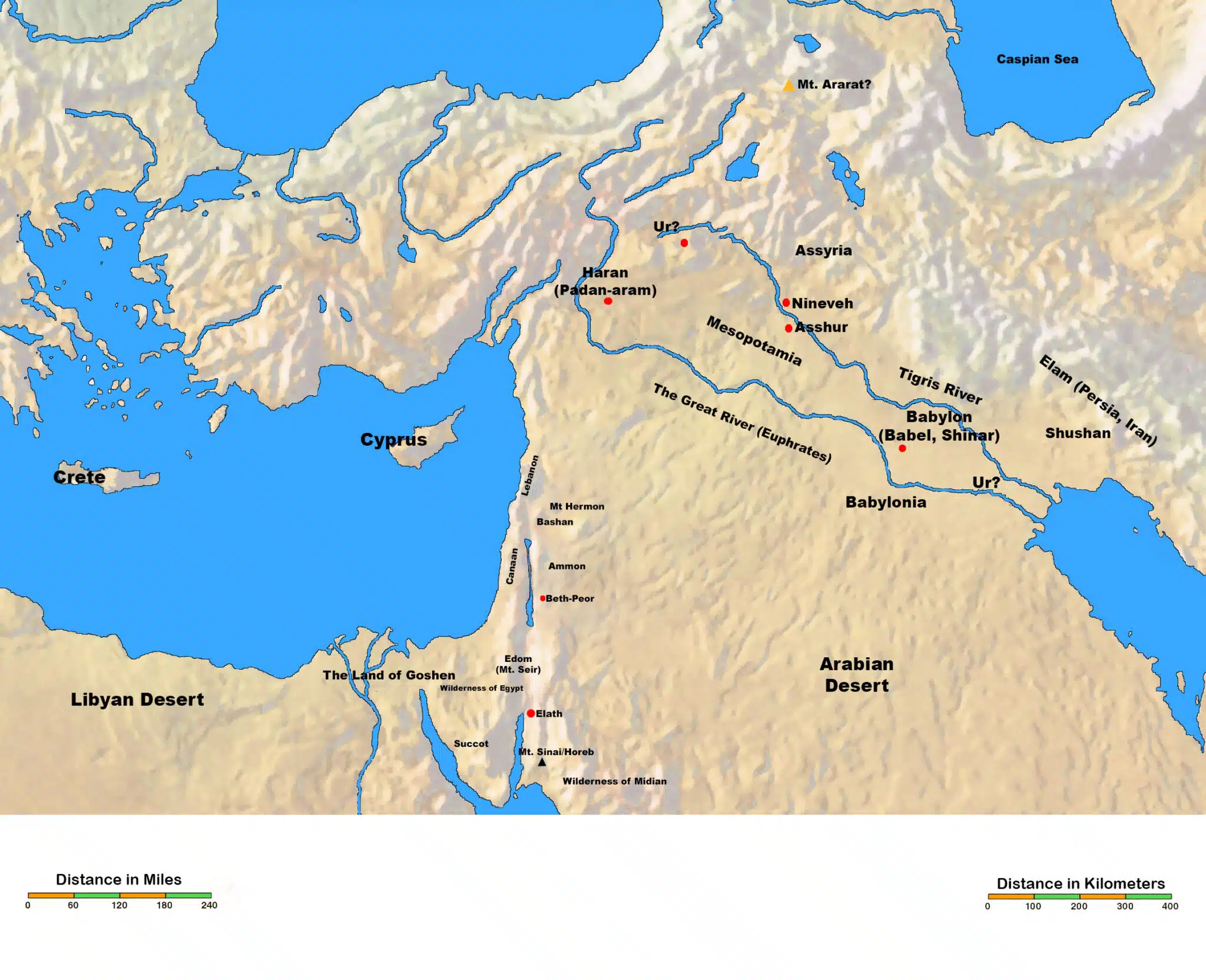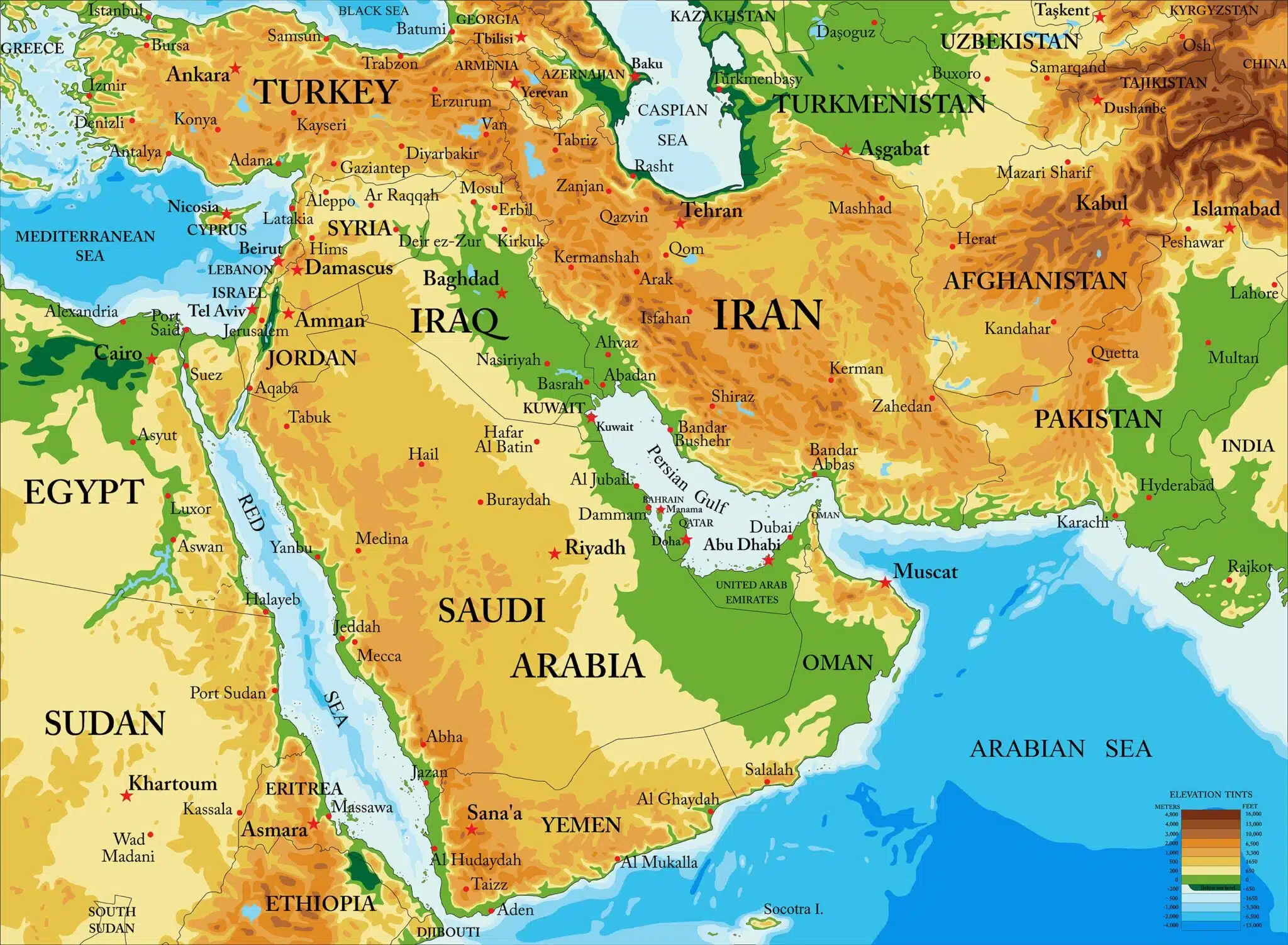A river flowed out of Eden and divided into four other rivers, the Pishon, the Gihon, the Tigris, and the Euphrates.
In verses 10-14, we find more details of the description of Eden. The four rivers do not pinpoint the exact geographical location of Eden, but they do suggest a potential connection with Mesopotamia. The river Pishon’s name is derived from the Hebrew verb push, meaning “to spring up.” The river Gihon’s name is based on a verb meaning “to burst forth.” The location of the land Havilah is unknown, but it is mentioned four more times in Genesis. Havilah had gold and precious stones, but Eden had the tree of life and the presence of God. The land of Cush may refer to a region of East Africa, possibly including Southern Egypt and Northern Sudan. Modern scholars suggest it could be Ethiopia.
The Tigris is one of two great rivers in Mesopotamia. It begins in southeastern Turkey and flows into the Persian Gulf. Many important cities were found along the Tigris, including Nineveh and Asshur. Assyria was a major empire in the region of the upper Tigris. The Euphrates and Tigris rivers outline the land called Mesopotamia. In fact, the name Mesopotamia means “between the rivers.” The ancient city of Babylon was built near the Euphrates. This river divided the Hittite and Egyptian empires.
Assyria is mentioned here probably because Moses (the author of Genesis) was using a marker familiar to the people of his time to describe the location of an area at a time prior to the creation of Adam and Eve. So the east appears to be the land of the Fertile Crescent, where civilization began.
Biblical Text
10 Now a river flowed out of Eden to water the garden; and from there it divided and became four rivers. 11 The name of the first is Pishon; it flows around the whole land of Havilah, where there is gold. 12 The gold of that land is good; the bdellium and the onyx stone are there. 13 The name of the second river is Gihon; it flows around the whole land of Cush. 14 The name of the third river is Tigris; it flows east of Assyria. And the fourth river is the Euphrates.
Check out our other commentaries:
-
Proverbs 7:6-10 meaning
Solomon tells a parable about a young man flirting with the adulteress and tempted by the way of wickedness....... -
Zechariah 2:1-5 meaning
In his third vision, Zechariah sees a surveyor who is about to mark out the boundaries of Jerusalem to prepare for rebuilding the city’s walls....... -
1 Samuel 17:31-39 meaning
David volunteers to fight Goliath, recalling his faith in the God of Israel and the skills he acquired protecting his father’s sheep. He assures King...... -
Exodus 14:5-14 meaning
Pharaoh and his assistants changed their minds about setting free the Israelites. So he prepared his best troops and chariots to pursue them and bring...... -
Daniel 1:2 meaning
Because of their lack of obedience, God allows Nebuchadnezzar to conquer Judah. Nebuchadnezzar takes all of the items from the Temple and puts them with......





